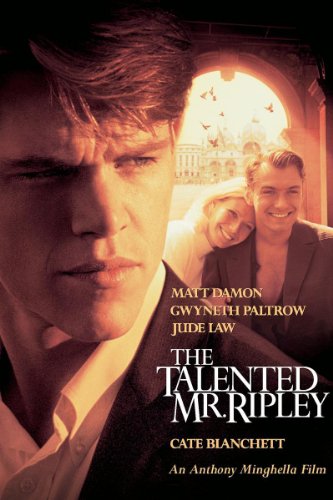Goodfellas (1990) Review
What movies do you think of when you think of gangster films? Chances are, Goodfellas is one of them. If it isn't, clearly you haven't seen enough gangster films, or at least any good ones, because out of all the gangster films I've seen (which is admittedly not that many), Goodfellas is one of the best. It is a masterpiece, plain and simple, and it is now in my top 10 favourite films of all time. Often considered Scorsese's magnum opus, it's not that hard to see why. It is well-filmed, well-acted, well-told, and well-written on all terms and it features some of the most interesting characters ever put to film. It is also considered one of the greatest Oscar snubs and though I have not seen Dances With Wolves, it's not that hard to guess why.
Goodfellas is about what is essentially the life and times of Henry Hill (Ray Liotta), also known as the utterer of the iconic line "as far back as I can remember, I wanted to be a gangster". Hill supplies most of the narration, though occasionally it switches to his girlfriend-cum-fiance-cum-wife. The film begins with Hill as a teenager, making friends with Paulie Cicero (Paul Sorvino) and doing odd jobs for the neighbourhood gangsters. It is also in his youth when Hill meets Jimmy Conway (Robert DeNiro) and Tommy DeVito (Joe Pesci in an unforgettable role), the other two main characters. However, this only makes up the first twenty or so minutes of the film. The rest of it is focused on Hill as an adult, and it essentially tells the story of about twenty years of Hill's life.
 |
| One of the funniest scenes in the film, which is actually very darkly comedic in a way |
By this time, Hill is high up in the ranks of the Lucchese crime family and he can enjoy the perks of gangster life, which was one of the main reasons why he had wanted to be a gangster in the first place. Not exactly for the crime, but for the money and the luxury. During this time, he meets and marries a Jewish woman named Karen (Lorraine Bracco), with whom he has two daughters, he commits several heists alongside Conway and DeVito, including the Air France heist (which establishes Hill as a high-standing New York gangster) and the Lufthansa Heist, which drives the film's last act. Not in a sense of actually performing the heist, but it drives Hill's actions in the film's last act, and it is the reason why a lot of blood is shed in the film.
The film also charts Hill's downfall, all culminating in the single take (or at least, what appears to be a single take) known as the worst day of Henry's life, which happens to be one of the greatest scenes ever put to film. In fact, a lot of scenes from Goodfellas could be considered some of the greatest scenes ever put to film. The film is also quite violent, as are many of Scorsese's films, but the violence on display here is put to very good use, giving the film a certain amount of visceral power and shock value. The violence has kind of lost its power over time, as all violence has (mainly due to the type of society we live in) but that doesn't stop the film from being good, especially considering it has several of the best gangster deaths in movie history (mostly at the hands of Pesci, but ones I won't spoil just in case some of you haven't seen it yet).
 |
| Ray Liotta and Robert De Niro. Also co-starring Ray Liotta's pouty face.. |
The film covers a great deal of time, but what is most interesting about it (besides the downfall of Hill) is the interaction between the characters, and the close-knit almost family of the gangsters. This family dynamic is most evident in the wedding scene, where the narration skips to Karen and she's talking about meeting all of Henry's colleagues and their sons and nephews, all of whom are named Peter or Paul and their wives, all of whom are named Marie. It is also prevalent in another scene with Karen's narration, where she is with all the gossiping mob wives (all of whom seem to be stereotypically Jewish). This family dynamic can switch on a dime though, because you could be chummy with a guy one day and the next day he might want to kill you. It's this mentality that makes Goodfellas so interesting and it is what gives the ending the punch it has, making it one of my favourite endings in all of film.
The story is just one facet of the brilliant script by Martin Scorsese and Nicholas Pileggi. Together, they have also managed to write some of the most interesting and memorable characters ever written. Henry Hill is our protagonist and narrator, and we see the film's progression through his eyes. I'm not sure if we're supposed to sympathize with him, but if we're supposed to, I found it kind of difficult, especially at the film's ending (which I won't spoil). Still, the part of the movie from when he was a kid humanize what could have easily become a complete monster, and he is still an enjoyable character to watch, thanks, in no small part, to Ray Liotta's fantastic performance. Our other two male main characters are Jimmy (Robert De Niro) a coolly violent gangster, and Tommy (Joe Pesci), who is the exact opposite. De Niro is relegated to a supporting role this time around, but I'm sure Scorsese would have gotten him to play Hill if there were no Liotta, but he fits well in his role here, and his character takes on a sort of colleague/mentor role with regards to Hill. However, De Niro's character grows more threatening in the last act (whereas before he had merely been a thug), giving De Niro a chance to shine and prove his status as one of the greatest actors of our time.
 |
| We get it Scorsese, you love The Great Train Robbery |
However, the performance that received the most acclaim (rightfully so) and the performance that made the film most memorable was that of Joe Pesci as Tommy DeVito. DeVito is a total loose cannon, willing to kill a man who just looks at him funny and especially willing to kill a man who pokes fun at his past as a shoe-shine boy. In fact, when he is (SPOILERS)"taken out"(END OF SPOILERS), some of his ruthlessness and hot-bloodedness transfers into the rather level-headed Jimmy. This was the role that got Joe Pesci an Oscar, where he gave one of the most notoriously short and modest acceptance speeches in Oscar history (which really speaks to his character because Goodfellas was his major film role and apparently, Pesci is quite a nice guy in real life). It was also the role that got him typecast for life, playing a relatively similar role in 1995's Casino. Typecasting aside, Pesci's performance is extraordinary, the greatest one in the film in fact, and he is definitely part of why the film is so memorable.
The film is also very good-looking too, and I'm not just talking about Ray Liotta (hehe). With the three films I have seen of his, I can say this for sure. Scorsese definitely knows how to open and close a film in all aspects. The opening and closing of Goodfellas are both extraordinarily memorable, and definitely some of the best in all of film. The cinematography is amazing as well, whether it be some of the more basic stuff or whether it's when the film gets a bit more stylized. The film also has a damn awesome soundtrack, as per any Scorsese film (so I hear). The editing is also amazing, and the film is just very high-quality in general.
 |
| "You think I'm a clown? Like my purpose is to fuckin' amuse you" |
The film is so high quality that even though I just watched it a week ago, it has already earned a place in my top 10 (possibly even top 5) favourite films of all time, and it is currently my favourite of the three Scorsese films I have seen. Goodfellas is simply a perfect film, no questions asked, and certainly one of the best films of the nineties. It is extremely well-written, extremely well-acted, and extremely well-filmed. This is a film that anyone and everyone should see, and any fans of Scorsese should see it now if they haven't seen it already (but I highly doubt that because Goodfellas is one of his definitive works). I, for one, can't wait to see it again and I can't wait for my love for the film to grow.
10/10- Instant Classic, See it now
 |
| Damn straight. |













